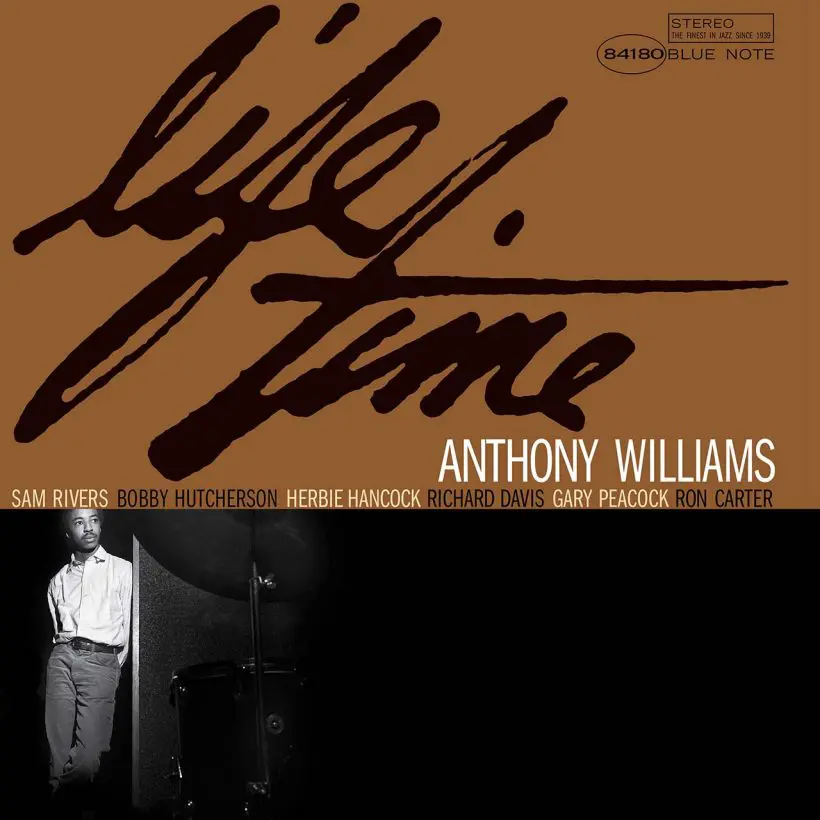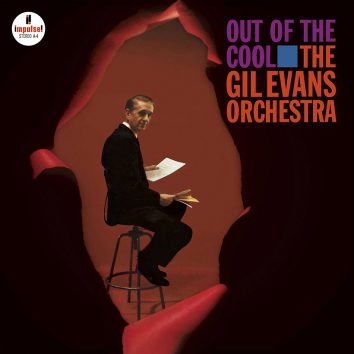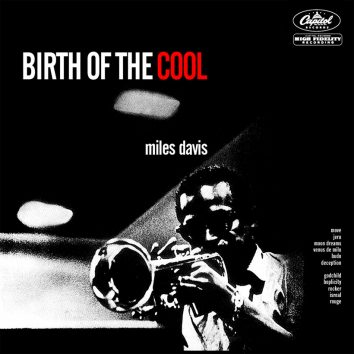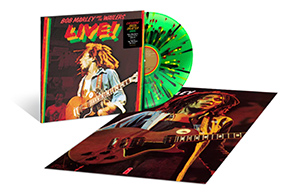‘Life Time’: Anthony Williams’s Avant-Garde Masterpiece
The teenage drummer pushed musical boundaries with his astonishingly audacious debut album.

A precociously talented wunderkind, drummer Tony Williams was only 17 when he joined Miles Davis’ group in 1963. Though the youngest in the group by some distance, he quickly became the lynchpin of the trumpeter’s new band, as Davis acknowledged in his 1988 memoir, Miles: The Autobiography. “He just lit a fire under everyone in the group,” he wrote. “Tony was always the center that the group’s sound revolved around.” The band quickly evolved into what critics dubbed Davis’ “Second Great Quintet” and went on to push the post-bop jazz envelope with pathfinding albums like E.S.P. and Nefertiti. But Williams wasn’t content to be a sideman or just a drummer: He was an ambitious composer with a keen interest in free jazz and improvisational music, which he pursued with his debut album, Life Time, released in January 1965.
Born in Chicago in 1945, Anthony Tillman Williams was raised in Boston, where, influenced by percussion masters Max Roach and Art Blakey, he took up the drums, studying with noted drummer/educator Alan Dawson. By the age of 13, he was playing professionally with another important early mentor, avant-garde saxophonist/flutist Sam Rivers. At 16, he joined Jackie McLean’s band, appearing on the alto saxophonist’s groundbreaking Blue Note album One Step Beyond as well as making significant contributions to some of the label’s other progressive recordings, including Grachan Moncur III’s Evolution and Eric Dolphy’s iconic Out To Lunch!
For his debut album, released under the name Anthony Williams, the drummer showcased his work as a composer rather than focusing solely on his percussion prowess. Playing the drums came naturally to Williams: “From an early age, it was so easy to figure stuff out, it was almost embarrassing,” he told Musician Magazine in 1992. But he found composing music more difficult. “I needed to tackle something that was hard, that wasn’t God-given, and see it grow,” he explained in the same interview. “That’s what writing music has been, and is, for me.”
Recorded on two consecutive days in August 1964, Life Time found Williams relying on his Miles Davis band cohorts to bring his musical vision to life; saxophonist Sam Rivers, pianist Herbie Hancock, and bassist Ron Carter. Joining them was vibraphonist Bobby Hutcherson – who was at home with hard bop and more progressive jazz – and two versatile bassists with contrasting styles: Richard Davis, who had played with Eric Dolphy, and Gary Peacock, whose credits ranged from free jazz saxophonist Albert Ayler to pianist Bill Evans.
Click to load video
Rather than have them all play together, Williams divided the musicians into smaller units. Davis and Peacock played together alongside Rivers and Williams on the first two compositions, the slow-moving “Two Pieces Of One: Red,” where sax and bass play a mournful melody in unison, and the livelier “Two Pieces Of One: Green,” where Williams explores offbeat meters with a long solo passage.
Click to load video
Williams played hand percussion in addition to the drums on the multi-textured “Memory” alongside Hutcherson’s glimmering vibraphone and woody marimba lines. Also appearing on that track and the closing cut, the haunting “Barb’s Song To The Wizard” – which Williams sat out – was Herbie Hancock, who remembered the drummer showed him the “tunes” by playing the piano parts with a finger from each hand. “(There were) no chords really, just two lines, and I had to write out the notes for him. His writing was very raw. But I wasn’t about to dismiss something because it was a two-fingered composition; knowing the kind of mind Tony had, I just wanted to not get in his way, to help him realize whatever he had in the back of his head.”
For those who only knew the drummer from his work with Miles Davis, Life Time’s radical dismissal of orthodox jazz tropes was a revelation. In the wider scheme of things, it was the first purposeful step of a musical journey that would later see Tony Williams branch out into jazz fusion and disco-funk with his group Lifetime, and even travel as far as rock, becoming an unlikely member of Santana and Public Image Ltd.










